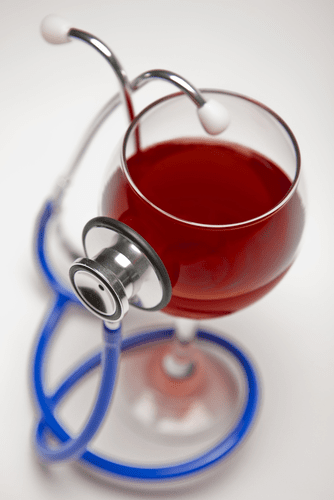If you want to cut back your alcohol consumption or stop drinking alcohol altogether, tapering may help. Tapering is the process of gradually weaning off alcohol rather than quitting cold turkey. You may be able to detox at home and still attend outpatient therapy or support group meetings. The brain compensates for the depressive effects of alcohol by increasing its activity. When people who are dependent on alcohol drink, they feel normal.

This can cause your brain to become hyper-excitable and leads to withdrawal symptoms. This condition most often occurs when someone who has long-term alcohol dependence stops drinking cold turkey. But if heavy drinkers cut back on their average number of drinks too quickly, they may be at risk of http://the-sexy.ru/zvezdy/mne-prosto-omerzitelno-ot-sebia-roma-jelyd-rasskazal-pro-zavisimost-ot-zapreshennyh-veshestv.html life-threatening withdrawal symptoms. Expect to feel some discomfort, including anxiety, sweating or irritability. If you feel more severe symptoms, such as paranoia, increased pulse, or tremors sometimes called alcohol shakes, you should taper more slowly and consider seeking professional help.
Done With Alcohol? Here’s How To Stop Drinking
With these things in mind, you need to weigh the pros and cons of tapering your alcohol use—ideally with someone you trust—to make a fully informed decision. Excessive drinking can weaken the immune system, increasing the body’s likelihood of developing an infection. Diseases like pneumonia and tuberculosis are more http://www.germany-rest.ru/hotels/hotel-174.html frequent in individuals who chronically drink. Generally, light to moderate drinkers should plan to taper for a week or more. Make sure you read and follow the advice carefully, and always be prepared to call an ambulance in an emergency. Overall, do whatever you can to make yourself as comfortable as possible.
- There are many factors that can affect how long weaning off alcohol will take.
- But Gen Zers are taking it slow as they enter adulthood, either by not drinking at all, or drinking less often and in less quantity than older generations.
- Moderate or binge drinkers can likely quit alcohol on their own.
- To learn about how our substance abuse treatment programs address alcohol dependence and withdrawal management, please contact us today.
Do not stop drinking entirely if you have previously experienced seizures (fits) or hallucinations (seeing or hearing things that aren’t there) when you stop drinking. When you’re drinking less than 10 units a day, you can try to stop drinking altogether. Without changing your drinking habits, try keeping a drinking diary for one week.
Inpatient Detox
They can help you decide if tapering is the safest option for you. If you’re struggling with severe alcohol addiction, a medical detox program is your likely best option for tapering off alcohol safely. But if you still have control over your drinking and want to drink less, you may be able to self-taper. The main downside of cold turkey is how unpleasant and risky it can be.
- If you simply show up and you’re not having a medical emergency, they might just refer you to a local substance abuse treatment center.
- Cold turkey is a common slang term for quitting alcohol (or any substance) all at once.
- Ideally, this schedule will be determined with the assistance of a doctor or addiction treatment professional.
- In contrast, in-patient care can be more beneficial and less expensive in the long-term.
- Some people attend a daytime program at a hospital or substance abuse treatment facility but go home at night.
A therapist will work with you to create a personalized plan for cutting back and provide ongoing guidance and accountability. Quitting cold turkey is likely to cause more intense withdrawal symptoms than if you taper off alcohol slowly. However, the self-control it takes to taper can be challenging for someone with an AUD. For that reason, it’s best to speak to a doctor or clinician when you’ve decided to stop drinking before you quit cold turkey. Creating a tapering schedule you can stick with is a crucial part of weaning yourself off alcohol.
How to Stop Alcohol Withdrawals
The most effective option for alcoholics to stop drinking is to find a treatment program that offers medical detox services. If you are interested in medical detox, contact one of our Vertava Health treatment specialists to find alcohol detox programs near you. Whether you’re a daily imbiber, heavy drinker, or frequent binge drinker, http://o6oi.ru/main.php/new?g2_albumId=24584&g2_imageViewsIndex=3&g2_itemId=89787 you’re likely to experience withdrawal symptoms when you quit. Unfortunately, there’s little to no evidence that tapering off reduces the effects of alcohol withdrawal, some of which can be severe or even life-threatening. Quitting with proper medical supervision may be more important than whether you stop gradually or all at once.
Lockdown, she says, presented her with an opportunity to step back from ingrained habits and address her anxiety issues. It can take different people varying amounts of time to taper off alcohol. How long it takes depends on factors like how much you typically drink.
